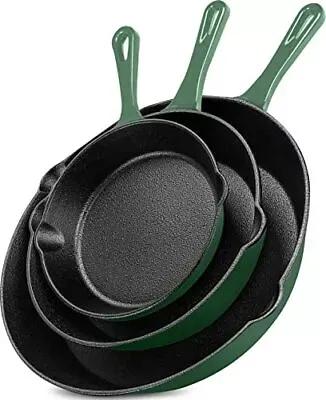
is enameled cast iron better than cast iron
Is Enameled Cast Iron Better Than Regular Cast Iron?
When it comes to cookware, cast iron has long been revered for its durability and heat retention. However, a newer alternative—enameled cast iron—has gained significant popularity in recent years. But how do these two types of cookware compare? Is enameled cast iron really better than regular cast iron? Let’s explore the pros and cons of each to answer that question.
What is Cast Iron?
Traditional cast iron cookware is made from iron alloy and is renowned for its excellent heat retention and even cooking. Seasoning is essential for regular cast iron. This process involves coating the cookware with oil and baking it until a layer of polymerized fat forms. This not only protects the surface from rusting but also creates a non-stick quality. However, it requires regular maintenance; food can stick if the seasoning is not maintained, and acidic foods can strip the seasoning away.
What is Enameled Cast Iron?
Enameled cast iron, on the other hand, is regular cast iron that has been coated with a layer of enamel—a glass-like substance that is fused to the metal at high temperatures. This coating offers several advantages. Firstly, enameled cast iron does not require seasoning, making it much easier to maintain. It is also resistant to rust and corrosion, meaning it can be stored without worry of oxidation. Additionally, the glaze comes in various colors, allowing for aesthetic appeal in the kitchen.
Benefits of Enameled Cast Iron
1. Ease of Cleaning One of the most significant advantages of enameled cast iron is its ease of cleaning. Unlike traditional cast iron, enameled versions are dishwasher safe and can be scrubbed without the fear of damaging a seasoning layer.
2. Versatility Enameled cast iron can withstand higher temperatures than most non-stick pans and is safe for use in the oven or on any type of stovetop, including induction. This makes it versatile for various cooking methods, including braising, sautéing, and baking.
is enameled cast iron better than cast iron

3. Non-reactivity Because of the enamel coating, enameled cast iron is non-reactive, meaning you can cook acidic foods like tomatoes or citrus without worrying about leaching metallic flavors into your dishes.
4. Aesthetic Appeal Available in a plethora of colors, enameled cast iron cookware can add visual appeal to your kitchen and can even be used as serving dishes.
Drawbacks of Enameled Cast Iron
However, enameled cast iron is not without its drawbacks. It tends to be more expensive than traditional cast iron and may chip if dropped, exposing the metal underneath. Moreover, the enamel coating can make the cookware heavier, which may not appeal to some cooks.
Benefits of Regular Cast Iron
Regular cast iron cookware has its own set of advantages. It is typically less expensive, more durable if maintained properly, and provides exceptional heat retention. Many chefs prefer traditional cast iron for frying and searing because of its superior heat control.
Conclusion
So, is enameled cast iron better than regular cast iron? The answer largely depends on your cooking style and preferences. If you prioritize low maintenance, versatility, and aesthetic appeal, enameled cast iron likely suits your needs better. However, if you value durability, cost-effectiveness, and have a passion for seasoning your cookware, traditional cast iron may be the way to go. Ultimately, both types of cookware have their place in the kitchen, and understanding their differences can help you make an informed choice. Whether you choose enameled or regular cast iron, you can be confident that you’re investing in quality cookware that will last a lifetime.
-
Dutch Oven Slow Cooker: AI Recipes & Even HeatingNewsAug.04,2025
-
Premium Cast Iron Large Griddle | Durable & Even HeatingNewsAug.03,2025
-
Large Cast Iron Griddle Pan-Baixiang County Zhongda Machinery|Non-Stick&Heat RetentionNewsAug.03,2025
-
Cast Iron Cookware Pan- Baixiang County Zhongda Machinery|Non-stick, DurableNewsAug.03,2025
-
Black Cast Iron Pan- ZD Cookware|Non-Stick, Heat ResistantNewsAug.03,2025
-
Cast Iron Cookware Pancake Pan- ZD Cookware|Non-Stick, Even Heat, DurableNewsAug.02,2025


